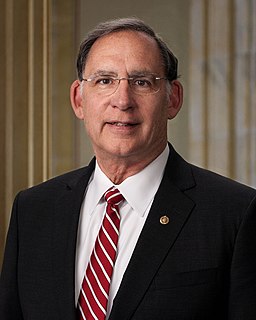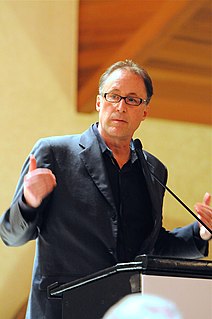A Quote by Dana Loesch
The tea party movement sprung from plain old disenchantment, disappointment, and outright anger at being fleeced by a government who mistook their primary job as being 'spend cash mon-nay' rather than execute the Constitution.
Related Quotes
I think there is a real misunderstanding about what the Tea Party movement is. The Tea Party movement is a sentiment in America that government is broken - both parties are to blame - and if we don't do something soon, this exceptional country will be lost, and it will become just like everybody else.
The tea party saved the Republican Party. In a broad sense, the tea party rescued it from being the fat, unhappy, querulous creature it had become, a party that didn't remember anymore why it existed, or what its historical purpose was. The tea party, with its energy and earnestness, restored the GOP to itself.
When we refuse to work with our disappointment, we break the Precepts: rather than experience the disappointment, we resort to anger, greed, gossip, criticism. Yet it's the moment of being that disappointment which is fruitful; and, if we are not willing to do that, at least we should notice that we are not willing. The moment of disappointment in life is an incomparable gift that we receive many times a day if we're alert. This gift is always present in anyone's life, that moment when 'It's not the way I want it!
Tainting the Tea Party movement with the charge of racism is proving to be an effective strategy for Democrats. There's no evidence that Tea Party adherence are any more racist than other Republicans and indeed many other Americans. But getting them to spend their time purging their ranks and having candidates distance themselves should help Democrats in November, having one's opponent rebut charges of racism is far better than discussing joblessness.
Every single person in the government swears an oath to the very same constitution, to abide by the laws in pursuance of this constitution, and they all have the responsibility to follow its plain words....If a judge makes a ruling that is contrary to the plain words of the Constitution, then it's not law, it's just his bad opinion!
If Aristotle, Livy, and Harrington knew what a republic was, the British constitution is much more like a republic than an empire. They define a republic to be a government of laws, and not of men. If this definition is just, the British constitution is nothing more or less than a republic, in which the king is first magistrate. This office being hereditary, and being possessed of such ample and splendid prerogatives, is no objection to the government's being a republic, as long as it is bound by fixed laws, which the people have a voice in making, and a right to defend.






































